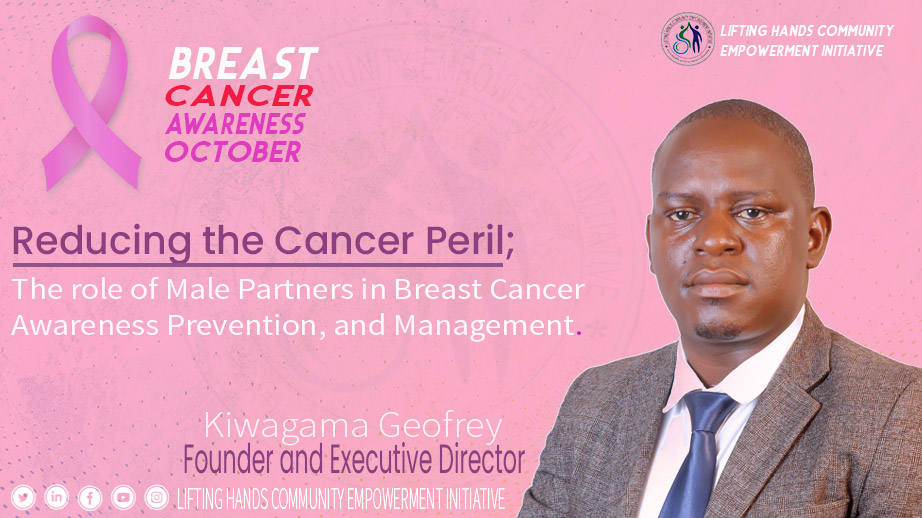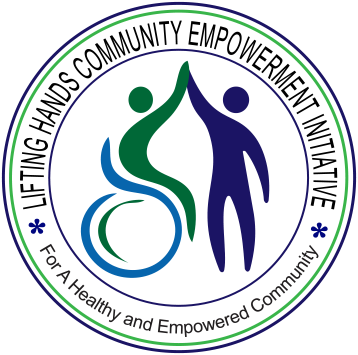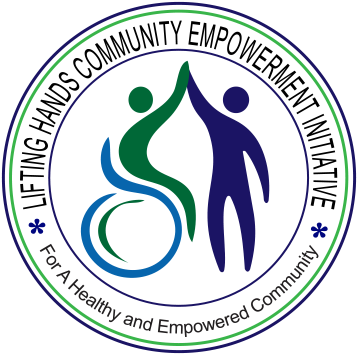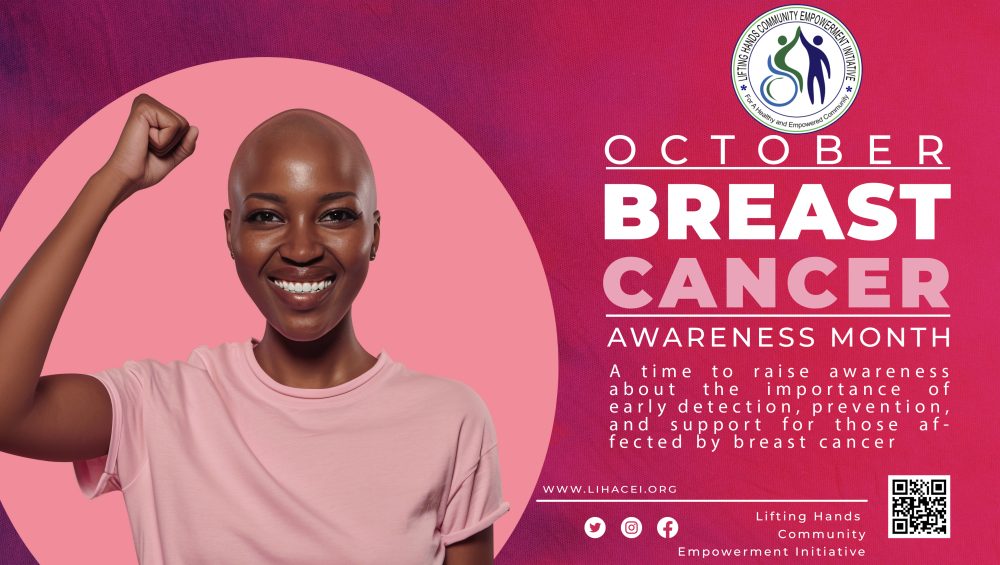
Breast cancer continues to be the most common type of cancer affecting women worldwide, representing a significant health challenge across all regions and demographics. Despite widespread awareness campaigns and the progress of medical research, these efforts predominantly target women, often leaving men on the sidelines of the conversation. This exclusion, however, overlooks the pivotal role male partners can play in both breast cancer prevention and its effective management. Breast cancer is not just a women’s issue—it is a family issue, and male involvement could be the missing link in reducing its devastating impact.
Let us explore the different ways why Male partners Involvement in Breast Cancer Awareness, Prevention and Management is both significant and transformative.
Supporting Early Detection: A Shared Responsibility
Early detection is one of the most important factors in improving breast cancer survival rates. However, the pressure to monitor breast health often rests solely on women, who may not always recognize subtle changes. Male partners, who observe their loved ones closely, can notice early warning signs such as lumps, skin changes, or unusual discomfort that may go unnoticed. By being vigilant and encouraging their partners to undergo regular breast exams and mammograms, men can help ensure timely detection, which is crucial for successful treatment.
In this context, awareness and education should not only focus on women but also empower men to participate in discussions about breast health. When men are informed about the symptoms and risks of breast cancer, they become instrumental in promoting early intervention, ultimately saving lives.
Emotional and Psychological Support: A Foundation for Healing
A cancer diagnosis is an emotionally overwhelming experience, often accompanied by fear, anxiety, and uncertainty about the future. Male partners can be a crucial source of emotional and psychological support, offering strength and stability during this challenging time. Their presence and encouragement can help alleviate the mental and emotional burdens that often accompany cancer treatment, such as feelings of isolation, fear of disfigurement, or worries about long-term health outcomes.
Men who remain engaged and supportive throughout their partner’s treatment—whether by attending doctor’s appointments, helping with decision-making, or providing emotional comfort—can significantly improve their partner’s ability to cope with the diagnosis and adhere to treatment plans. The power of a supportive partner cannot be underestimated; it fosters resilience and promotes better overall health outcomes.
Breaking the Stigma: Advocating for Open Dialogue
In many cultures, cancer is shrouded in stigma, particularly breast cancer, which is often associated with taboo subjects related to body image and femininity. These stigmas can deter women from seeking help or even discussing the topic with their loved ones. Male partners can play a critical role in dismantling these barriers by encouraging open dialogue about breast cancer within families and communities.
By advocating for open conversations and normalizing the importance of breast health, men can help women feel more comfortable seeking medical care. Furthermore, when men speak openly about breast cancer, they challenge the cultural taboos and misconceptions that often prevent early diagnosis and treatment. They become powerful advocates for change, fostering a community where breast cancer is understood and managed without fear or judgment.
Men as Advocates: Spreading Awareness Beyond the Household
Male partners have the potential to extend the reach of breast cancer awareness beyond their immediate family circle. By becoming advocates in their workplaces, social circles, and broader communities, men can help amplify the message that breast cancer prevention and awareness are everyone’s responsibility. Engaging men in public health campaigns or awareness initiatives can lead to a wider acceptance and understanding of the disease, ultimately driving earlier detection and better treatment outcomes.
By participating in awareness walks, fundraising events, or even sharing informative resources, men can contribute to the ongoing battle against breast cancer and help break the misconception that it is solely a women’s concern.
Promoting Healthy Lifestyles: The Role of Partners in Prevention
Lifestyle factors such as diet, physical activity, alcohol consumption, and tobacco use all play a role in breast cancer risk. Male partners can be proactive in advocating for healthier habits within the household. Encouraging a balanced diet, regular exercise, and reducing alcohol consumption are actions that benefit the entire family. When men adopt and promote healthier lifestyles, they contribute to reducing the overall risk of breast cancer, supporting both prevention and overall well-being.
Furthermore, by leading by example and prioritizing preventive health measures, men underscore the importance of a proactive approach to health, reinforcing the message that breast cancer prevention is a shared responsibility.
Male Breast Cancer: A Hidden Risk
Though breast cancer in men is rare, it is not unheard of. In fact, men are at risk of developing breast cancer themselves, although this is rarely addressed in awareness campaigns. Men need to be aware of their own breast health and understand the signs and symptoms that might indicate a problem. Including male breast cancer in education and awareness initiatives ensures a more comprehensive understanding of the disease and helps foster an inclusive conversation about breast health.
Men as Allies in the Fight Against Breast Cancer
The fight against breast cancer cannot be won by women alone. Male partners are critical allies in prevention, early detection, and ongoing support, yet their involvement remains largely untapped. By empowering men to take an active role in breast cancer awareness and prevention, we can foster a more inclusive approach that benefits both men and women.
Breast cancer awareness campaigns must shift from being exclusively female-centered to including men as key players in this important battle. From promoting regular screenings to offering emotional support and advocating for healthier lifestyles, male partners can make a significant difference in reducing the impact of breast cancer on families and communities.
Men should no longer be passive bystanders in the fight against breast cancer. Their engagement is vital, and their partnership in this battle can lead to better outcomes for the women they love and for society at large. It’s time to recognize that breast cancer is not just a women’s issue—it’s a family issue, and men have an essential role in addressing it.







